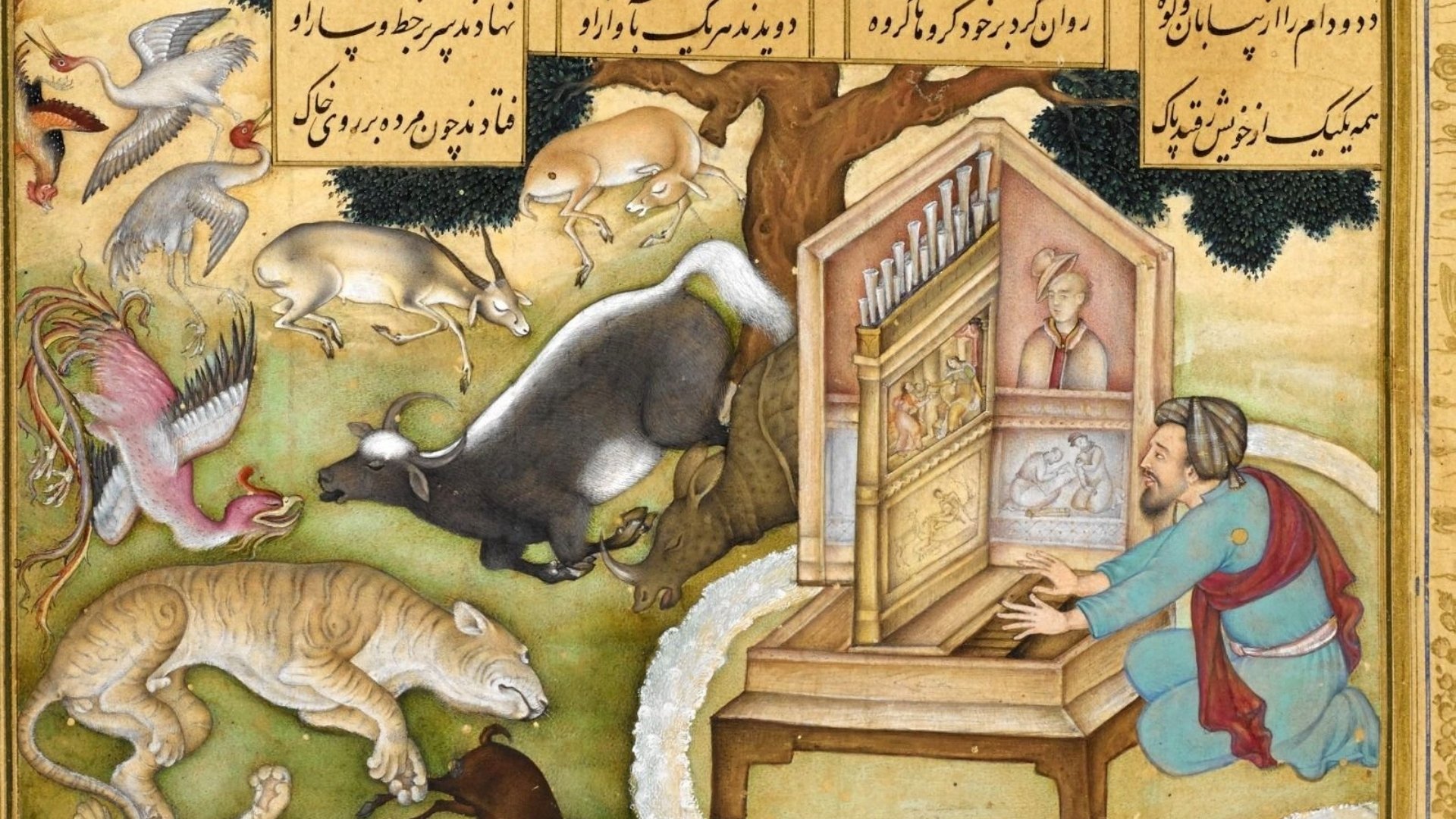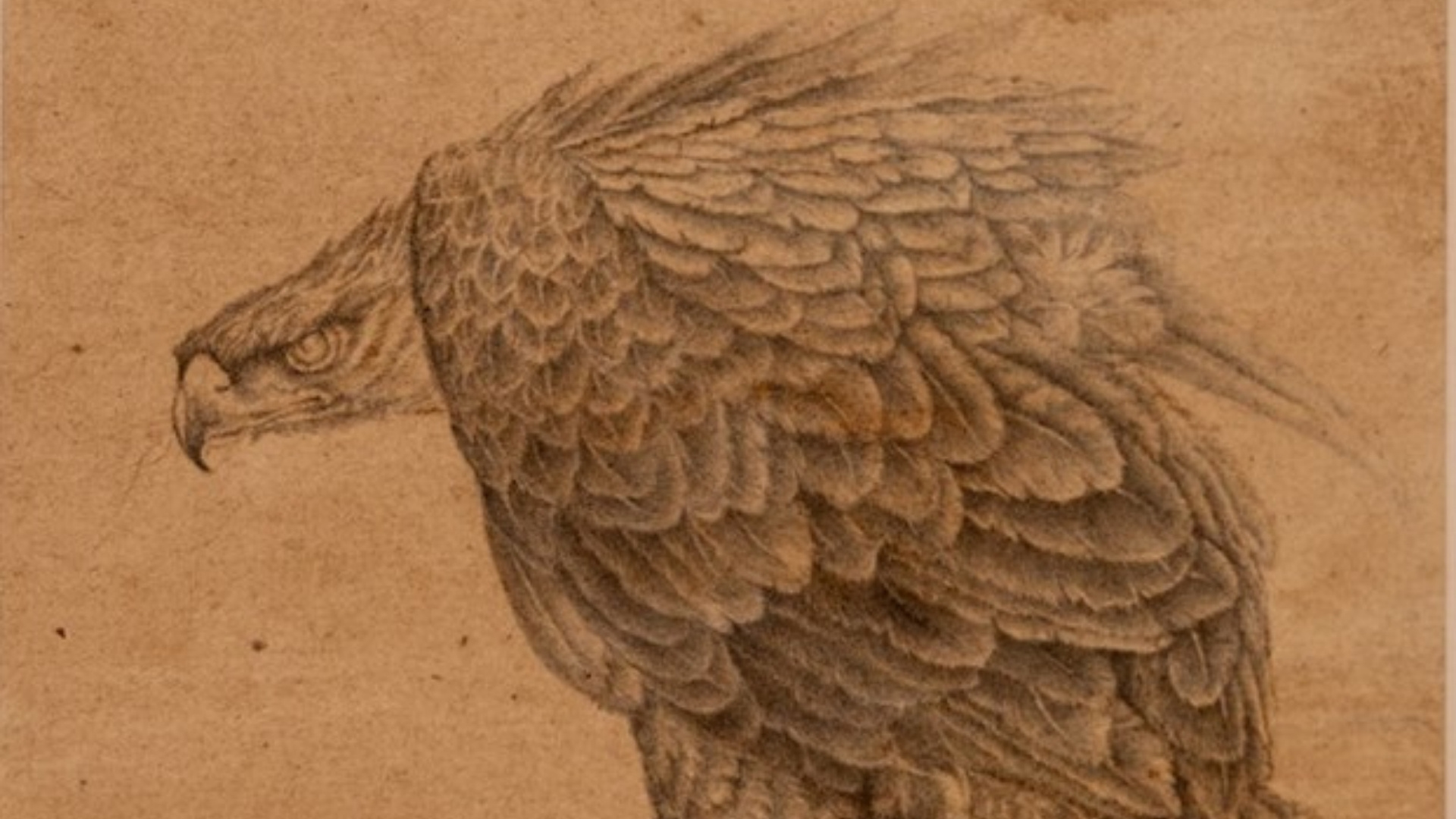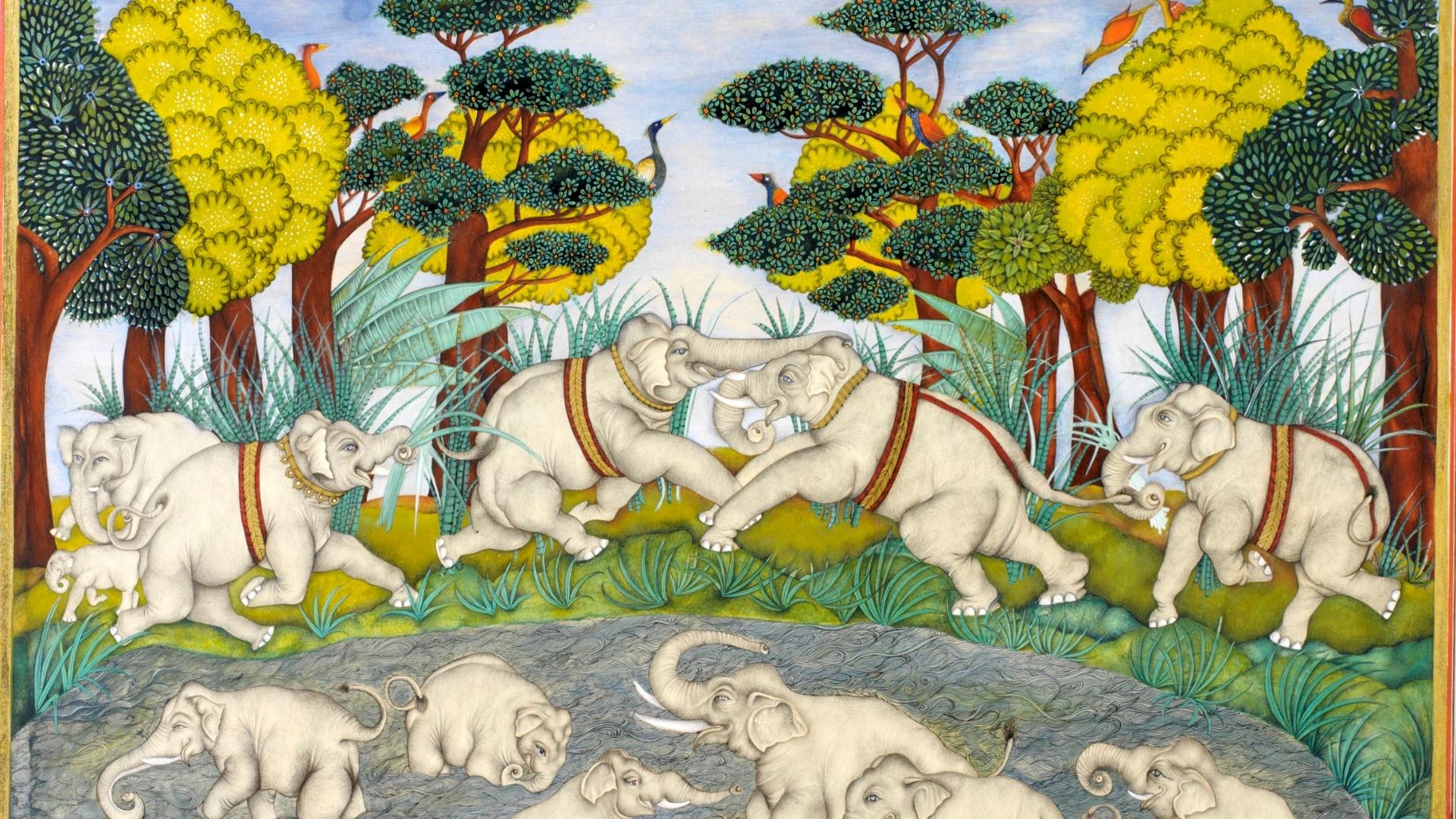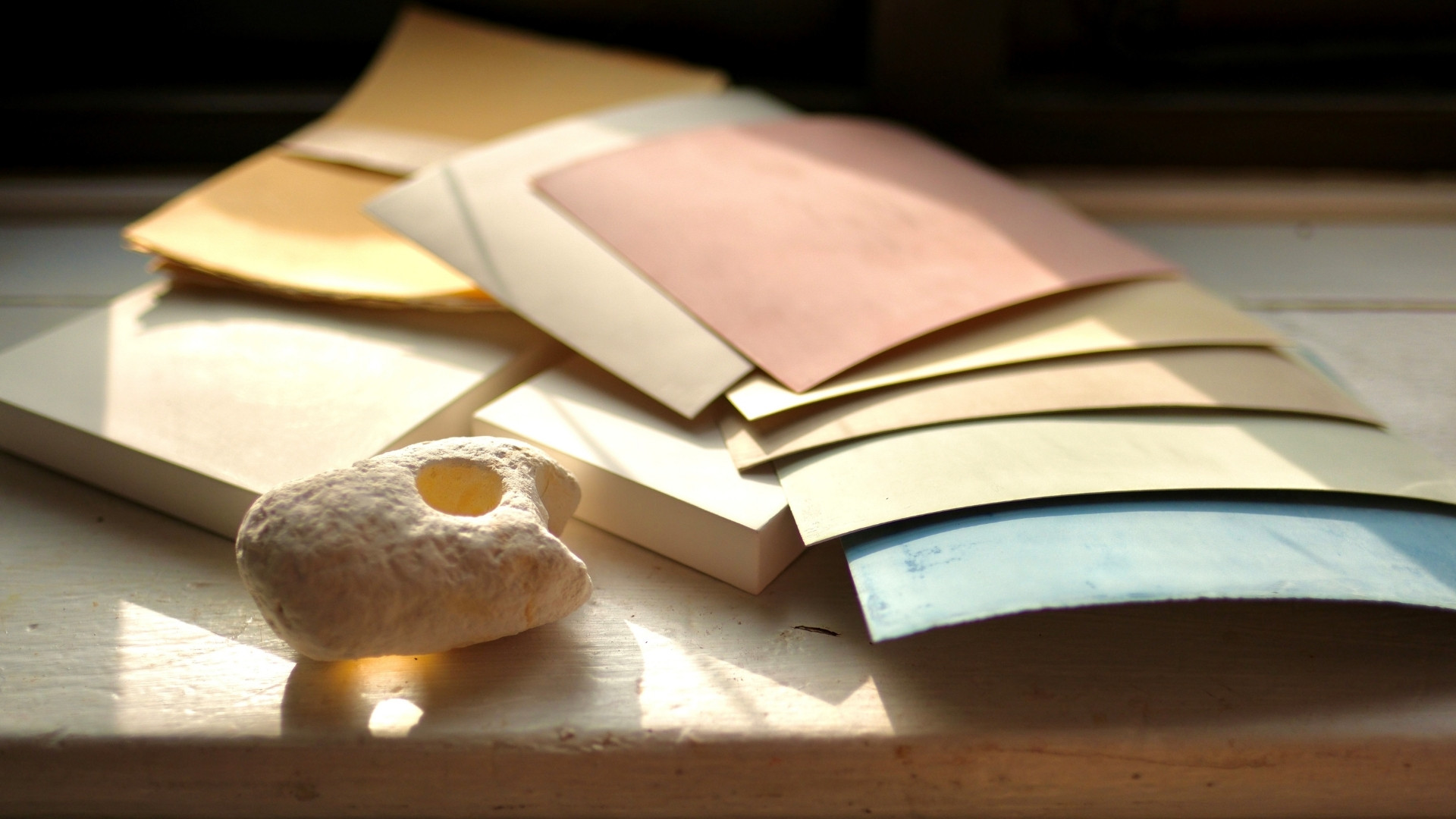About
As the story goes, a competition took place between two great Greek philosophers, Plato and Aristotle, to decide who was the wisest. Aristotle began by boasting that he possessed all earthly knowledge. In response, Plato listened to the music of the spheres and stars, then created a musical instrument unlike any seen before. When Plato drew a circle around himself and played this instrument, its sounds were so harmonious and perfect that animals around him—predator and prey alike—fell into a hypnotic swoon. Afterwards, Plato played another tune to wake them. The animals, now refreshed, continued on their way.
This astonishing scene is not mentioned in Greek epics. Instead, it is found in the Khamsa of Nizami, in Nizami’s account of Alexander the Great (Iskandar). Aristotle, chastened by his loss, eventually accepts Plato as the true master. This is in line with the rise of Neoplatonism and Sufism in Persia at the time.
In this course, we will paint inspired by Plato’s charming and waking the animals – focus and reflect, and then emerge, refreshed by beauty and harmony.
The pleasure of concentrating on a single miniature for a period of time involves us deeply. We are immersed in it; we live with it; we live in it. Inhabiting and internalising a painting in this way is a wonderful and traditional way to learn. In today’s fast-paced world we need to sit, focus on and contemplate our single piece and grow to love and understand it. We will understand the subtle art of colour, composition and blending by our action of making and doing, connecting with the work. The aim is not to rush, but to dwell. Thus painting is a form of meditation in itself.
Students are invited to recreate this miniature painting alongside the tutor, incorporate elements into existing work or be inspired to create their own compositions. Lions, tigers, and antelopes lie in repose, allowing us to see and paint their soft bellies and draw them in positions we don’t normally find in miniature painting.
Key Information
Who is this course for?
All levels of ability and experience are welcome. You must be aged 18 or over to participate in our programmes.
What days/times do I attend?
Monday – Friday, 9 – 13 March 2026, 10:00 – 16:30
How many people can attend?
14 places are available.
Where will this course take place?
This course will take place at our studios at The King’s Foundation School of Traditional Arts, 19-22 Charlotte Road, London EC2A 3SG.
What should I bring to class?
- 1 size sable watercolour brush (00000 size in the US). The tutor recommends the Rocks brush from The Perfect Brush.
- 1 fine sable watercolour brush for outlines. The tutor recommends the Clouds brush.
- 1 larger sable watercolour brush for colour filling; The tutor recommends the Water brush.
- A palette with wells
- Artist-quality watercolours (preferably in pan form rather than tube form, but tube is ok). Required colours: 1 each of ivory black, titanium white, burnt umber, ultramarine blue, cadmium red, and cadmium yellow.
- Optional: Colours that could be useful for a Persian palette include: malachite, lemon yellow, Naples yellow, permanent magenta, cobalt turquoise light, French vermilion, cobalt violet, Payne’s grey, permanent alizarin, permanent sap green, manganese blue, indigo, yellow ochre, gold ochre, green earth/terre vert, raw sienna, burnt sienna, raw umber, and burnt umber.
- Either genuine shell gold watercolour (22 carat or above) OR a synthetic gold watercolour paint, e.g. this paint from Finetec,or similar.
Optional: - An Ether brush for transfer, size medium or large is fine.
Wear comfortable clothing that you do not mind getting slightly messy. Avoid wearing baggy clothing (especially sleeves), loose jewellery, high heels or open-toed shoes.
FAQs
Do you offer concessions?
Yes, we offer concessions for Seniors/60+, full-time students and people who are unemployed/in receipt of benefits.
Concessions cannot be applied in retrospect. To receive a concession, please apply via our online form. We will then send you a discount code to use when booking your space.
Terms & Conditions
The School reserves the right to discontinue or suspend a Course up to fourteen (14) calendar days before the advertised start date of the Course. This course requires a minimum number of enrollments to run.
The School may take and use images of you and/or your work for course advertisement and social media purposes.
Our normal terms and conditions apply.
Tutor Biography
Vaishali Prazmari is a multidisciplinary artist whose work incorporates elements from various cultures including the Indo-Persian miniatures and Chinese painting of her heritages. Vaishali holds degrees from both the Slade School of Fine Art and the King’s Foundation School of Traditional Arts and holds an MA in Medieval and Renaissance Studies (UCL) specializing in floating islands. She studied Persian and Indian manuscript painting under various masters and during her MA at PSTA and Chinese painting under a master in Hong Kong. Vaishali has been painting ever since she could get her chubby hands on a brush. Her work has been acquired in collections globally and she has exhibited nationally and internationally for nearly 20 years. She has been bringing traditional miniature painting to life for a wider audience as an educator for 10 years. Having been immersed in these ancient painting traditions as well as contemporary art she is now working towards a syncretic PhD at the Slade, an epic project that is a contemporary visual interpretation of the 1001 Arabian Nights. Born in London, she grew up on an island in Hong Kong and currently lives and works in London.



